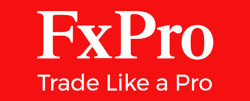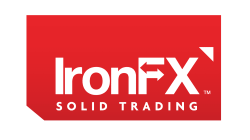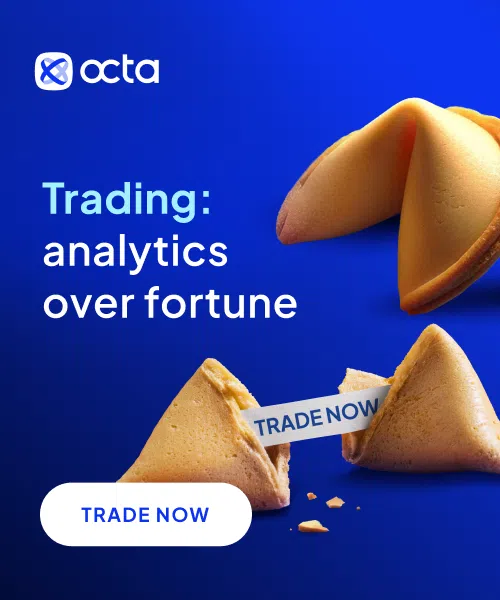For over a decade, FxScouts Nigeria has been reviewing forex brokers and providing in-depth analyses. Our extensive research and unique testing methodology ensures that all broker reviews are accurate and fair, with hundreds of thousands of data points generated annually. Since 2012, we’ve tested over 180 brokers across global and African markets. Our team of professionals are frequently cited in global and regional media, shaping market conversations and trends.
-
Best Forex Brokers
Our top-rated Forex brokers
-
NGN Trading Accounts
Save on conversion fees
-
Brokers for Beginners
Start trading here
-
Forex Demo Accounts
Learn to trade with no risk
-
ECN Brokers
Trade with Direct Market Access
-
No-Deposit Bonuses
Live trading with no deposit
-
High Leverage Brokers
Extend your buying power
-
Lowest Spreads Brokers
Tight spreads and low commissions
-
Islamic Account Brokers
Best accounts for Muslim traders
-
Market Maker Brokers
Fixed spreads & instant execution
-
MetaTrader 4 Brokers
The top MT4 brokers in Nigeria
-
MetaTrader 5 Brokers
The top MT5 brokers in Nigeria
-
TradingView Brokers
The top TradingView brokers
-
cTrader Brokers
The top cTrader brokers in Nigeria
-
Forex Trading Apps
Trade on the go from your phone
-
Copy Trading Brokers
Copy professional traders
-
All Trading Platforms
Find a platform that works for you
75-90% of retail traders lose money trading Forex and CFDs. You should consider whether you understand how CFDs and leveraged trading work and if you can afford the high risk of losing your money. We may receive compensation when you click on links to products we review. Please read our advertising disclosure. By using this website you agree to our Terms of Service.
- AvaTrade - $100 Deposit, No Commission, Great Mobile App
- FXTM - 2000:1 Leverage and Copy-trading
- XM - $5 Deposit, Excellent Education for Beginners
- FxPro - 4 Trading Platforms, 10ms Trade Execution
- Exness - $1 Deposit, Unlimited Leverage, 24/7 Customer Support
- IronFX - 85 Forex Pairs, Seven Account Types
- markets.com - 3 Platforms, 0.6 pip Spreads
- XTB - User-friendly Platform, Tight Spreads
These are the best Market Maker Brokers for 2024
Broker | Broker Score | Official Site | Min. Deposit | Max. Leverage | EUR/USD - Standard Spread | EUR/USD - Raw Spread | Cost of Trading | Total CFDs | Currency Pairs | Trading Desk | Regulators | Platforms | Website Language: English | Support Language: English | Compare |
|---|---|---|---|---|---|---|---|---|---|---|---|---|---|---|---|
 | 4.59 /5 Read Review | Visit Broker > 76% of retail CFD accounts lose money | USD 100 | 400:1 | 0.90 pips | 0.90 pips | USD 9 | 930 | 63 | Market Maker |       | MT4, MT5, Avatrade Social, AvaOptions | Yes | Yes | |
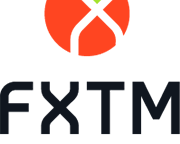 | 4.27 /5 Read Review | Visit Broker > 81% of retail CFD accounts lose money | USD 10 | 2000:1 | 1.50 pips | 0.00 pips | USD 15 | 1803 | 62 | ECN/DMA, Market Maker |     | MT4, MT5 | Yes | Yes | |
 | 4.45 /5 Read Review | Visit Broker > 75.33% of retail CFD accounts lose money | USD 5 | 1000:1 | 0.60 pips | 0.60 pips | USD 6 | 1554 | 57 | Market Maker |      | MT4, MT5 | Yes | Yes | |
4.39 /5 Read Review | Visit Broker > 71.58% of retail CFD accounts lose money | USD 100 | 200:1 | 1.40 pips | 0.40 pips | USD 14 | 2241 | 70 | Market Maker NDD |      | MT4, MT5, cTrader, FxProEdge | Yes | Yes | ||
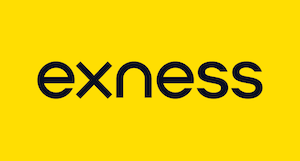 | 4.32 /5 Read Review | Visit Broker > 71.67% of retail CFD accounts lose money | USD 3 | Unlimited:1 | 0.70 pips | 0 pips | USD 7 | 221 | 100 | Market Maker |      | MT4, MT5, Exness Terminal | Yes | Yes | |
 | 3.64 /5 Read Review | Visit Broker > 75.35% of retail CFD accounts lose money | USD 50 | 1000:1 | 2.20 pips | 0.00 pips | USD 22 | 285 | 83 | Market Maker, ECN/DMA |     | MT4 | Yes | Yes | |
4.68 /5 Read Review | Visit Broker > 70.3% of retail CFD accounts lose money | USD 100 | 300:1 | 0.70 pips | 0.60 pips | USD 7 | 1009 | 56 | Market Maker |      | MT4, MT5, markets.com | Yes | Yes | ||
4.39 /5 Read Review | Visit Broker > 78% of retail CFD accounts lose money | USD 0 | 500:1 | 0.70 pips | 0.70 pips | USD 7 | 5211 | 57 | Market Maker NDD |      | xStation5 | Yes | Yes |
Avatrade – $100 Deposit, No Commission, Great Mobile App
With regulation across six jurisdictions, Avatrade is one of the most reputable market maker brokers in the industry, offering trading on multiple assets, including Forex, commodities, cryptocurrencies, ETFs, options, bonds, and vanilla options. Considering the 100 USD minimum deposit, Avatrade’s single account features some of the tightest spreads in the industry, averaging at 0.9 pips on the EUR/USD. As is typical with market makers, no commissions are charged.
Avatrade’s proprietary trading app, AvaTradeGO provides one of the best mobile trading experiences. Voted Best Forex by the Global Forex Awards, AvaTradeGO allows traders to access trader insights, connect with global trading markets, create watchlists, and view live prices and charts. Also available in the app is the AvaProtect tool, a state-of-the-art risk management system that protects traders from losses for a limited time.
FXTM – 2000:1 Leverage and Copy-trading
Founded in 2011, FXTM is a market maker authorised and regulated by various authorities, including CySEC, the FCA, and the FSC (Mauritius). FXTM’s trading conditions vary across the three account types but are generally better than most other market makers. Maximum leverage is up to 2000:1, and variable spreads reach as low as 0 pips on its market execution Advantage Account in exchange for a floating commission of between 0.40 and 2 USD.
For beginner traders looking to copy professional traders, FXTM offers the FXTM Invest CopyTrading scheme, where traders can copy the Strategy Managers whose risk profiles match their own. Copy trading is one of the easiest ways to benefit from another trader’s expert knowledge. Copy traders simply decide on the amount they wish to invest, choose the most appropriate Strategy Manager, and all trades will be automatically copied to the copy trader’s account. Copy traders receive the same returns on each trade as their Strategy Manager.
XM – $5 Deposit, Excellent Education for Beginners
XM is a well-regulated market maker with tight spreads on three simple account options known for its excellent education and customer service. All accounts feature maximum leverage of up to 1:888, negative balance protection, and minimum deposits that start at 5 GBP. Spreads are as tight as 0.6 pips (EUR/USD) on its Ultra Low Account, and 99.35% of all trades are filled in under a second. It also has a strict no requotes/no rejection policy, and as such, all trades are filled at the expected price.
XM’s education and market analysis materials are comprehensive, in-depth, and well-structured. Its research team provides frequent market analysis across all CFD assets in an easy-to-understand manner, highlighting trading opportunities and technical insight. Impressively, webinars are available from Monday – Friday 05:00 – 15:00 GMT in 19 languages, and the educational videos cover basic, intermediate, and advanced trading concepts.
FXPro – 4 Trading Platforms, 10ms Trade Execution
A well-respected regulated market maker broker with no dealing desk intervention, FXPro offers a variety of account choices on four different platforms, including MT4, MT5, cTrader, and its proprietary platform, FxPro Edge. All accounts feature a minimum deposit requirement of 100 USD, and leverage of up to 200:1. Spreads are relatively wide on the MT4 and FxPro account types, averaging at 1.84 pips on the EUR/USD, but averaging 1.65 pips (EUR/USD) on the MT5 account. Spreads tighten significantly on the cTrader account, down to 0.31 pips in exchange for a reasonable commission of 4.5 USD per lot.
Most trades at FxPro are filled in under 10 milliseconds, and trades are executed at one of FxPro’s Equinox Data Centres in either London or Amsterdam. FxPro’s trading servers are co-located and cross-fiber connected with Tier 1 banks that provide liquidity via its proprietary aggregator, Quitox. One drawback for traders considering FxPro is its limited selection of educational and market analysis materials, making it a poor choice for beginner traders.
Exness – $1 Deposit, Unlimited Leverage, 24/7 Customer Support
Founded in 2008, Exness is a market maker offering both market and instant execution on two standard and three professional trading accounts. Trading conditions at Exness are some of the best in the industry and include a low-cost Cent Account to help beginner traders find their footing.
The Standard Cent Account requires a 1 USD minimum deposit, offers micro-lot trading, spreads as tight as 0.3 pips on the EUR/USD, and unlimited leverage, making it a perfect choice for beginners who want to learn about trading without too much risk. Customer support is also available 24.7 to help beginner traders with account setup and to assist with any technical queries. Lastly, Exness provides a comprehensive educational repository, which caters to traders of all experience levels, and includes various guides, videos, and frequent webinars that are available in five different languages.
IronFX – 85 Forex Pairs, Seven Account Types
| 🏦 Min. Deposit | USD 50 |
| 🛡️ Regulated By | CySEC, FCA, ASIC, FSCA |
| 💵 Trading Cost | USD 22 |
| ⚖️ Max. Leverage | 1000:1 |
| 💹 Copy Trading | Yes |
| 🖥️ Platforms | MT4 |
| 💱 Instruments | Commodities, Stock CFDs, Forex, Futures, Indices, Metals |
Established in 2010 in Cyprus, IronFX is a well-regulated market maker/ECN broker offering trading on multiple assets, including over 85 Forex pairs, metals, indices, commodities, futures, and shares. IronFX offers seven account types, four of which employ instant execution and three market execution accounts. Traders, therefore, have the benefit of choosing how their trades are executed, along with the spread/commission combination that bests suits their strategy.
The minimum deposit requirement is 50 USD on its commission-free entry-level account and spreads start at 1.8 pips on the EUR/USD, which is wider than other market maker accounts. Spreads tighten to 0.0 pips on the Zero Fixed Account in exchange for an extremely high commission of 18 USD/lot. Leverage is up to 1000:1 on instant execution accounts, and all traders have access to a Dedicated Account Manager.
Markets.com – 3 Platforms, 0.6 pip Spreads
Founded in 2010, Markets.com is a well-regulated market maker offering trading on a wide range of assets, including shares, ETFs, Indices, commodities, Forex, cryptocurrencies, and bonds. Full support is offered for MT4, MT5, as well as Markets.com’s own proprietary platform. The platform is packed with a wide range of fundamental, technical and sentiment-based trading tools and expert analysis, in addition to in-depth charting and comparison tools.
Markets.com offers competitive trading conditions on one live commission-free account, with a minimum deposit requirement of 1500 Rand, leverage of up to 300:1, and spreads starting at 0.6 pips on the EUR/USD. All traders are assigned a dedicated Account Manager to assist with any queries regarding their account or using the platform, and Markets.com’s responsive customer service is available 24/5 over the phone, via email, or in-platform through its Live Chat feature.
XTB – User-friendly Platform, Tight Spreads
XTB is a well-regulated market maker with no dealing desk that uses straight-through processing (STP) execution. All trades are automatically sent to its parent company, X-Trade Brokers DM, its liquidity provider, and trades are executed without any dealing desk intervention.
Support is only offered for XTB’s proprietary platform, xStation 5, which has won many awards for its superior functionality and fast execution speeds. With a user-friendly and intuitive design, it allows traders to track market movements accurately. It also offers powerful charting tools, one-click trading, real-time performance statistics, and a trader’s calculator.
XTB offers trading on two live accounts with competitive trading conditions. The commission-free Standard Account offers spreads starting at 0.5 pips on the EUR/USD, 0.7 pips (EUR/USD) on the Islamic Account. A commission of 10 USD per lot is charged on the Islamic Account, and leverage is up to 500:1 on both account options.
The Forex Market and Market Makers
In order to better understand how and why market makers operate the way they do, we need to understand how the Forex market works.
The vast majority of Forex trading takes place in the interbank market, trillions of dollars in currencies move between the major banks in this market on a daily basis (6.6 trillion USD per day is the 2019 estimate). It is in this space where the market is made; the prices set here, between the members of the interbank market, will be the basis for pricing in the lower volume sections of the Forex market, including the retail CFD market.
It is fair to say that the primary market makers in the Forex market are the members of this interbank market. They effectively set the rules for everyone else to play by – including market maker CFD brokers.
How do Market Makers Work?
Like all Forex brokers, market makers will offer you a bid and an ask (buy and sell) price on currency pairs, this price will be mostly set by the pricing of the currency pair on the interbank market. As market makers will be taking exposure to the risk associated with the trade (i.e. will be counterparty to the trade) they will also charge a mark-up fee on both the buy and sell prices.
The difference between the buy and sell prices is called the spread and is how market makers make most of their money. Think about it as the fee charged by the broker for creating the liquidity needed to make your trade. Most market makers will also hedge the trades they take on with a member of the interbank market, thus protecting themselves from losses – this is especially true in cases of large volume retail trades.
Market makers may also make alterations to the pricing on pair based on other factors:
- Current exposure – a broker’s risk management team may dictate changes in pricing if they believe they are holding too many trades in one direction on a pair
- The dealing desk’s views on future price movement – if the broker believes the GBP is overpriced against the USD, this will affect the pricing offered
- Volume – as mentioned above, market makers will protect themselves when taking large volume trades, so will often insist on wider spreads and less leverage in these cases.
Market Makers vs ECN Brokers
Market makers are distinct from the other form of retail Forex CFD brokers, known as ECN (Electronic Communication Network) brokers. Instead of making a market and exposing themselves to the trading risk of their clients, ECN brokers act as a middleman between the trader and the members of their networks. Rather than being the counterparty to trades, ECN brokers will match trades against the best available price from their network of possible counterparties.
Because ECN brokers take no risk exposure from the trade and sit at the centre of a web of ruthless supply and demand forces, spreads are generally very tight and trade execution speeds are often much quicker. But ECN brokers will charge commission on every trade they match – making them an expensive proposition for smaller account sizes.
Should I Trade with a Market Maker?
As mentioned at the top, many traders are wary of working with market maker brokers, as they feel that there is an inherent conflict of interest in the business model. While it is true that a market maker will never quote prices that are going to damage their business, they will always have to offer a fair price – they cannot alter the pricing too much one way or the other before they open themselves up to arbitrage risk (the risk of traders making a profit by trading the discrepancies in pricing).
Furthermore, market makers in Europe, the UK and Australia will have strict requirements placed on them by regulators committing them to ensuring best execution of trades. Under this rule, it is illegal for market makers to skew trades to damage a client’s position.
If you are trading with a well-regulated market maker, the only real discussion to be had when considering trading through them or not is the style of broker you prefer. If you want tighter spreads and can afford commission on your trades, then an ECN broker may best – but for many retail Forex traders, this will be an unreasonable expense. It is also worth noting that many market maker brokers also offer very tight spreads and excellent all-round trading conditions.
How We Rate Market Maker Brokers
When we consider which market maker brokers are suitable for recommendation, we always look at the same factors. Each of these factors has the potential to radically alter your trading experience, and it is especially important for new traders to have trading conditions good enough to learn without being wiped out.
Regulation
Regulators ensure that market makers host a fair and transparent trading environment, all the while conducting strict auditing oversight and ensuring client fund protection. Brokers that are regulated by more than one major regulator are considered more trustworthy.
The major regulators are:
- United Kingdom – Financial Conduct Authority (FCA)
- Continental Europe – Cyprus Securities and Exchange Commission (CySEC)
- Australia –Australian Securities and Investments Commission (ASIC)
These international regulators are respected for their commitment to consumer protection, strong oversight and swift enforcement of sanctions on fraudulent brokers. They also all publish warning lists of unauthorised firms, so it is worth checking these before signing up with a broker.
All market makers regulated by one or more of these regulators will be a fair and secure firm to do business with.
Trading Conditions
It is important to choose a market maker with the trading conditions that will support your trading strategy. Think about how much leverage you want to have available; keeping it low (100:1 or less) is a good idea if you are still learning how to trade. Also, consider what account currencies are supported by the broker and what currency pairs you want to trade, you do not want to be spending a fortune in conversion fees.
Other trading conditions to consider will be how tight the spreads are on the currency pairs you will want to trade, and what other assets are available that you may want to trade. Most Forex brokers will also offer CFD trading on commodities (such as oil, gas, etc.), precious metals (gold, silver, etc.), indices (FTSE, DAX, NYSE) and cryptocurrencies.
Account Types
Consider the different account types on offer at your broker, most market makers offer swap-free Islamic accounts, and all will offer demo accounts to practice with – the best demo accounts are unlimited and exactly simulate the real market.
Other popular account types are copy trading and social trading accounts. These will allow you to copy successful traders, who will then take a cut of your profits. A similar idea is the PAMM (Percentage Allocation Money Management) account, which is a pooled money operation, where the members of the money pool can choose what proportion of their account they want to allocate to a certain trader.
Trading Platforms
It is important to carefully choose a trading platform and find a broker that supports that platform. MetaTrader 4 (MT4) is a safe choice as it’s the industry standard and there is a multitude of online tutorials, though it is gradually being replaced with MetaTrader 5 – which has a more modern look and feel and has many features missing from MT4.
Market makers will not offer cTrader, as this is an ECN-only platform, but many will have their own in-house platforms, most of which are designed with new traders in mind so are easy to learn and have a more intuitive layout.
Broker Fees
We always check for additional broker fees that may be charged and so should you.
Market makers generally make their money from the spread, but some will also charge additional fees to further boost their profits. The most common charge is withdrawal fees, and it is good practice to always ask your broker if and how much they charge for withdrawing from your account. Generally, withdrawals fees are cheaper or non-existent when using online payment systems (such as Skrill) are used for funding your account.
We always highlight any extra fees charged by brokers in our reviews and will penalise brokers with extortionate fees.
Customer Service
Customer service is in your native language is important and many brokers offer full support in multiple languages. The best customer service will be available by live chat, email, messaging apps and over the phone. Many brokers will also offer a call-back service, so you do not have to make expensive international calls.
Good market makers offer customers support 24 hours a day, Monday-Friday and a rare few will also offer weekend service. If you are new to Forex trading you will want a broker with responsive technical support and customer support representatives with an in-depth knowledge of their products and platforms.
Education and Research
Forex education is especially important for new traders, many of the larger market maker brokers offer excellent structured Forex courses for beginners and a few will also have courses covering more advanced topics, like strategies and indicators. If you want to be a successful Forex trader you will never stop learning, so having a broker with excellent educational resources will essential.
Alongside educational support, a good broker will also have an in-house research team offering insightful market analysis on a daily, if not hourly, basis. Some market makers will leave market analysis to third-party companies such as Trading Central or TradingView – while these applications are both very useful, we find that brokers with their own analysis teams often provide better market research ideas and more useful information for new traders.
Final Word
Market makers are often unfairly blacklisted by many members of the Forex CFD trading community; the truth is that well-regulated market makers are an essential part of the Forex market. By committing themselves to be counterparty to any trade they provide much-needed stability, both in terms of liquidity and in terms of market function.
With the current regulations in place, it is also impossible for market makers to work against their clients – even if they wanted to ruin their reputation and open themselves up to arbitrage in this fashion.
It is worth noting that while well-regulated market makers are trusted members of the Forex market and essential for its function, there are many unregulated (or very poorly regulated) market makers that do not behave as ethically. Therefore, it is critical that you always trade with a market maker you trust – one that has a good track record and has oversight from a major regulator.
Forex Risk Disclaimer
Trading Forex and CFDs is not suitable for all investors as it carries a high degree of risk to your capital: 75-90% of retail investors lose money trading these products. Forex and CFD transactions involve high risk due to the following factors: Leverage, market volatility, slippage arising from a lack of liquidity, inadequate trading knowledge or experience, and a lack of regulatory protection. Traders should not deposit any money that is not considered disposable income. Regardless of how much research you have done or how confident you are in your trade, there is always a substantial risk of loss. (Learn more about these risks from the UK’s regulator, the FCA, or the Australian regulator, ASIC).
Our Rating & Review Methodology
Our State of the Market Report and Directory of CFD Brokers to Avoid are the result of extensive research on over 180 Forex brokers. These resources help traders find the best Forex brokers – and steer them away from the worst ones. These resources have been compiled using over 200 data points on each broker and over 3000 hours of research. Our team conducts all research independently: Testing brokers, gathering information from broker representatives and sifting through legal documents. Learn more about how we rank brokers.
Editorial Team

Chris Cammack
Head of Content
Chris joined the company in 2019 after ten years experience in research, editorial and design for political and financial publications. His background has given him a deep knowledge of international financial markets and the geopolitics that affects them. Chris has a keen eye for editing and a voracious appetite for financial and political current affairs. He ensures that our content across all sites meets the standards of quality and transparency that our readers expect.

Alison Heyerdahl
Senior Financial Writer
Alison joined the team as a writer in 2021. She has a medical degree with a focus on physiotherapy and a bachelor’s in psychology. However, her interest in forex trading and her love for writing led her to switch careers, and she now has over eight years experience in research and content development. She has tested and reviewed 100+ brokers and has a great understanding of the Forex trading world.
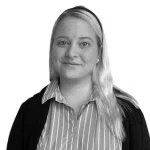
Ida Hermansen
Financial Writer
Ida joined our team as a financial writer in 2023. She has a degree in Digital Marketing and a background in content writing and SEO. In addition to her marketing and writing skills, Ida also has an interest in cryptocurrencies and blockchain networks. Her interest in crypto trading led to a wider fascination with Forex technical analysis and price movement. She continues to develop her skills and knowledge in Forex trading and keeps a close eye on which Forex brokers offer the best trading environments for new traders.






























